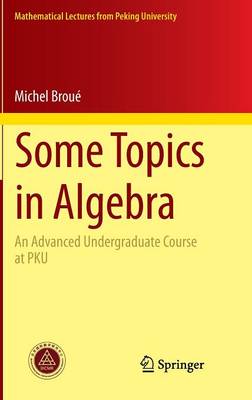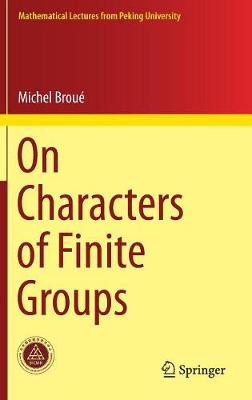Mathematical Lectures from Peking University
2 total works
During the springs of 2011 and 2012, the author was invited by Peking University to give an advanced undergraduate algebra course (once a week over two months each year). This book was written during and for that course. By no way does it claim to be too exhaustive. It was originally intended as a brief introduction to algebra for an extremely pleasant and passionate audience. It certainly reflects some of the author's own tastes, and it was influenced by the feelings and the reactions of the students.
Nevertheless, the result covers some advanced undergraduate algebra (rings, ideals, basics of fields theory, algebraic integers, modules, hom and tensor functors, projective modules, etc.) illustrated by numerous examples, counterexamples and exercises. Following a worldwide tradition, the author had planned to conclude by lecturing on the structure of finitely generated modules over principal ideal domains. But during the course, after explaining that the notion of projective modules is more natural than the notion of free modules, it became clear that principal ideal domains needed to be replaced by Dedekind rings; this is much less traditional in the literature - but not more difficult.
This book explores the classical and beautiful character theory of finite groups. It does it by using some rudiments of the language of categories. Originally emerging from two courses offered at Peking University (PKU), primarily for third-year students, it is now better suited for graduate courses, and provides broader coverage than books that focus almost exclusively on groups.
The book presents the basic tools, notions and theorems of character theory (including a new treatment of the control of fusion and isometries), and introduces readers to the categorical language at several levels. It includes and proves the major results on characteristic zero representations without any assumptions about the base field. The book includes a dedicated chapter on graded representations and applications of polynomial invariants of finite groups, and its closing chapter addresses the more recent notion of the Drinfeld double of a finite group and the corresponding representation of GL_2(Z).

